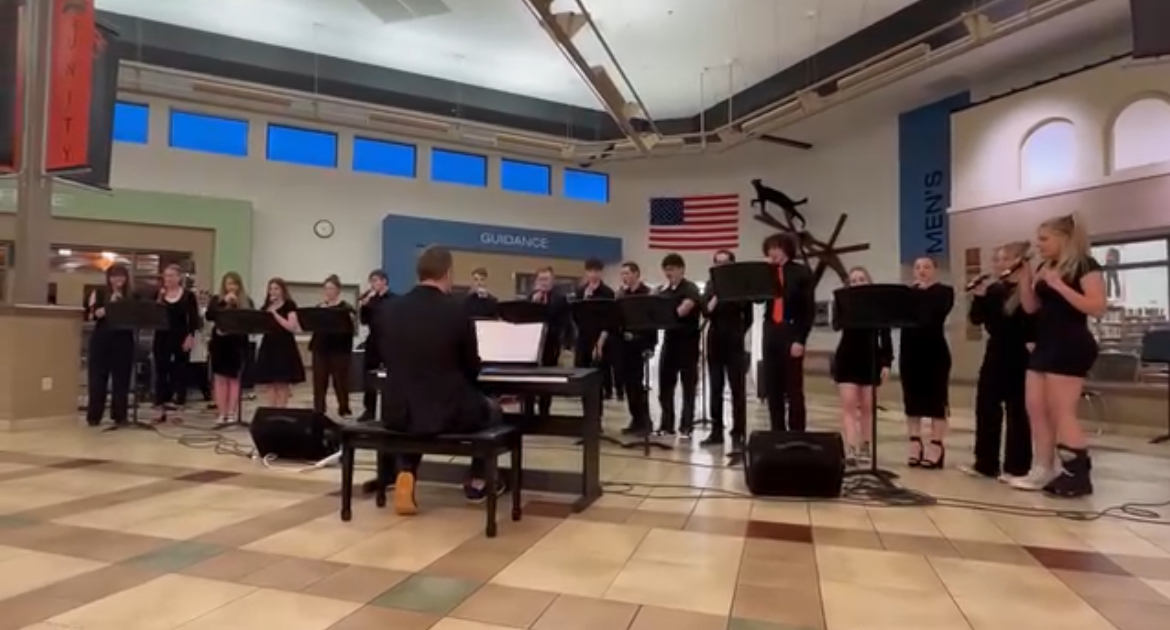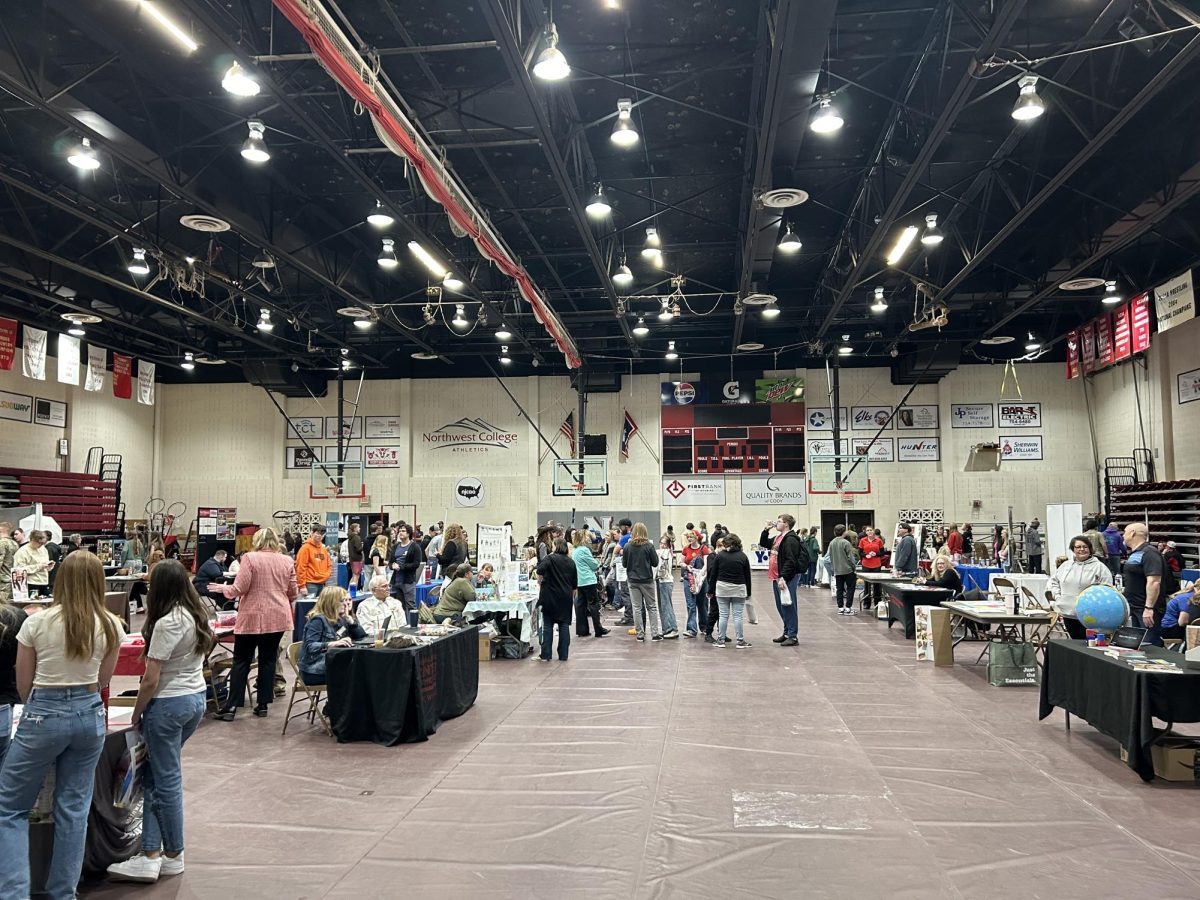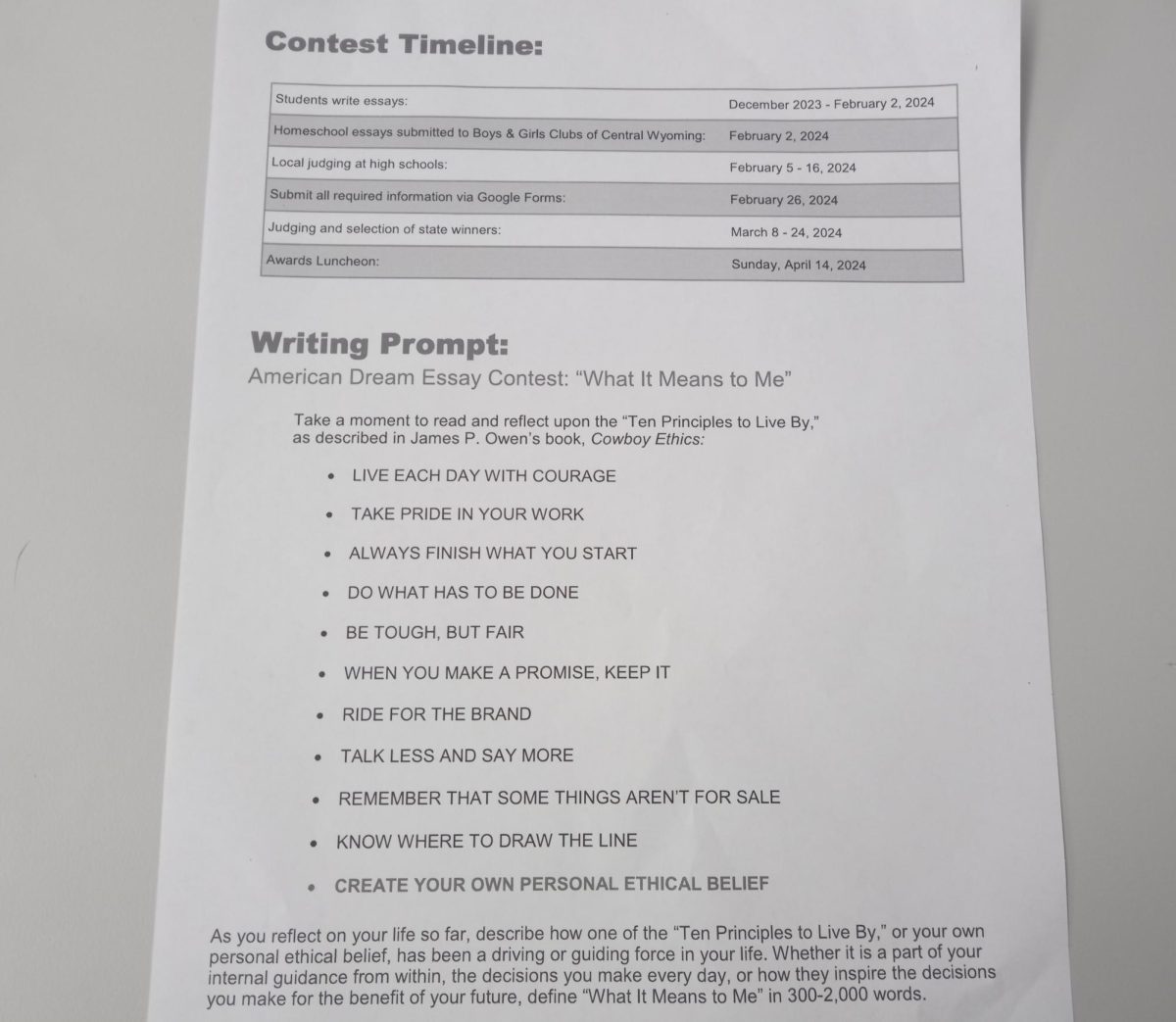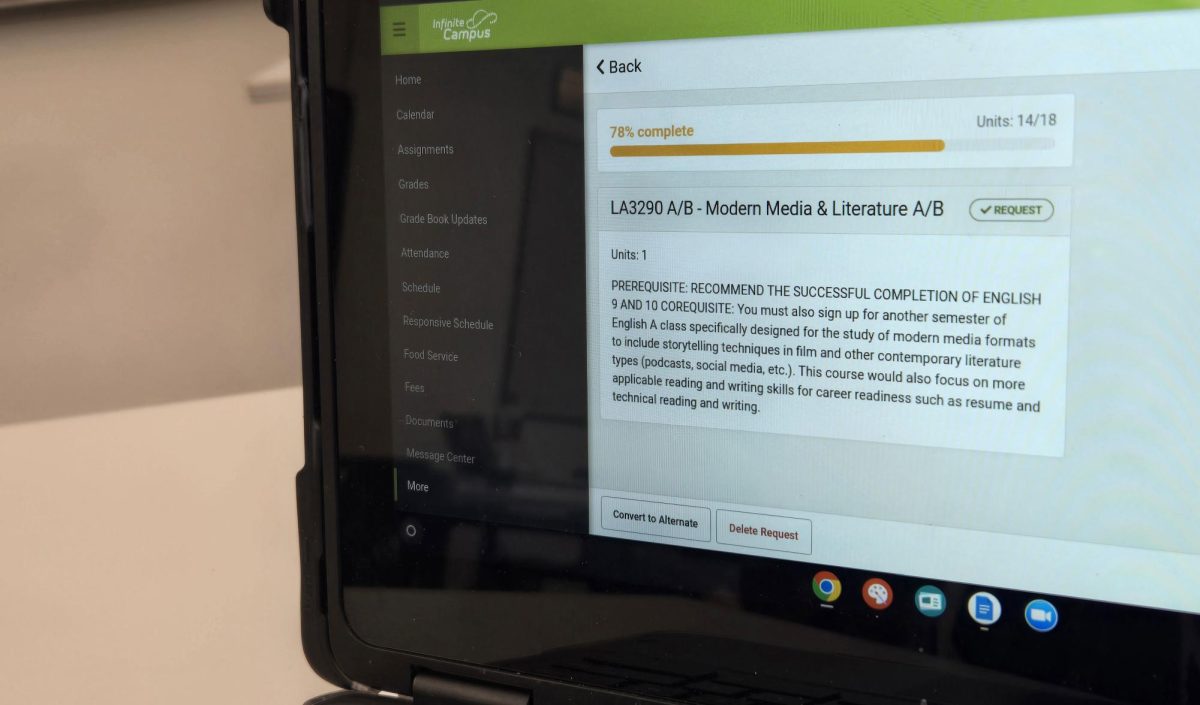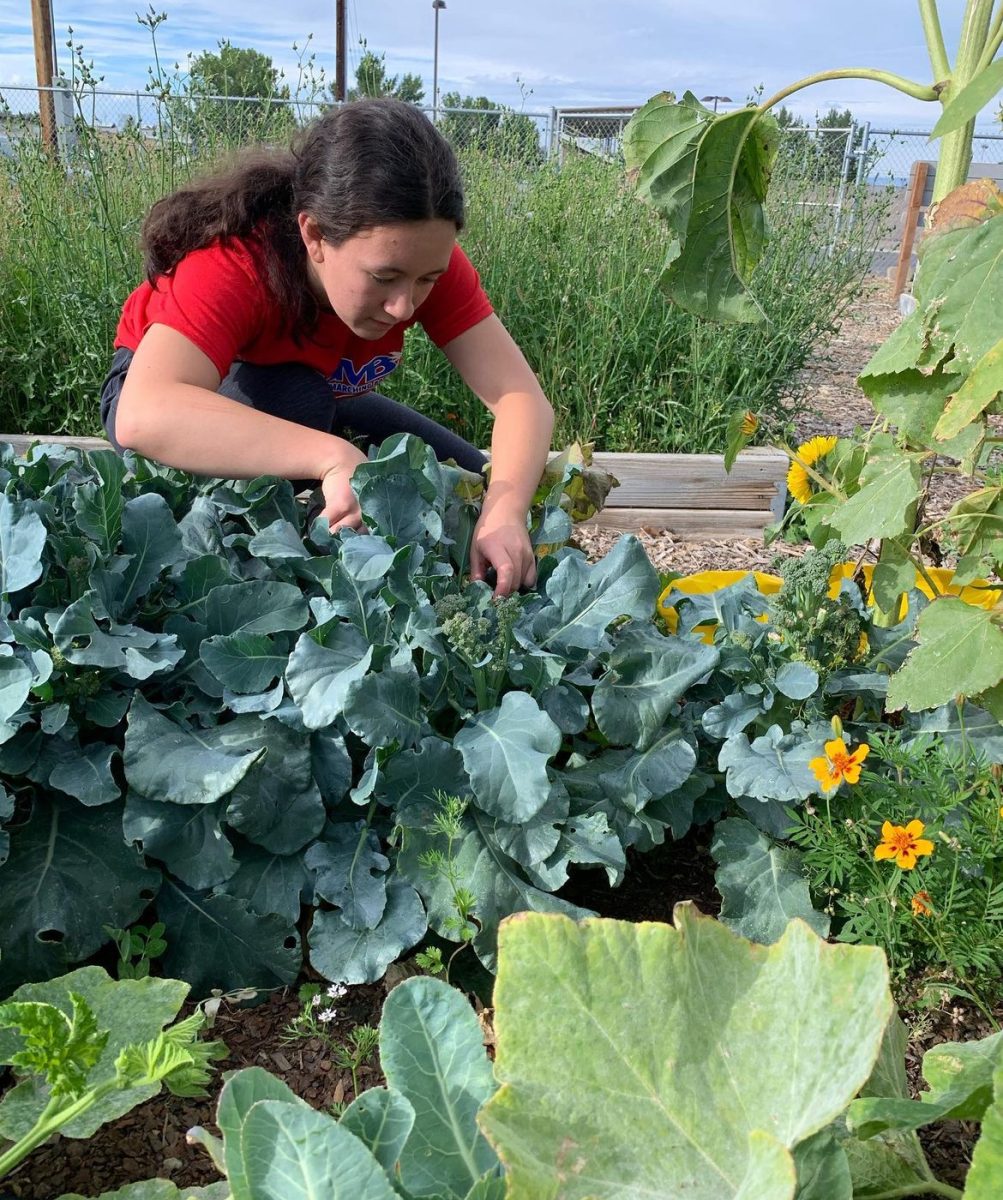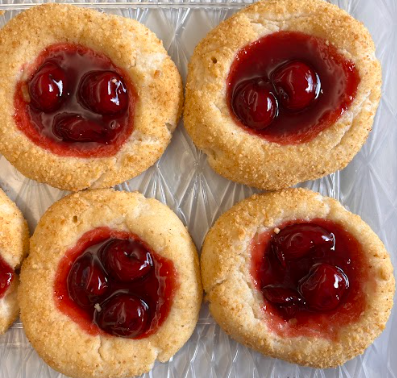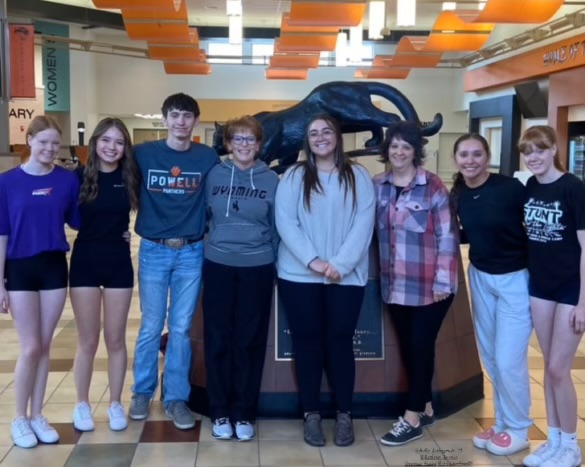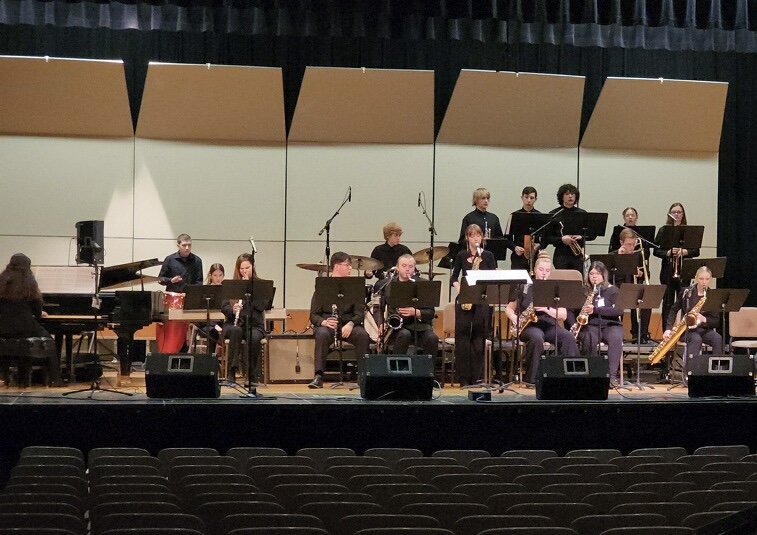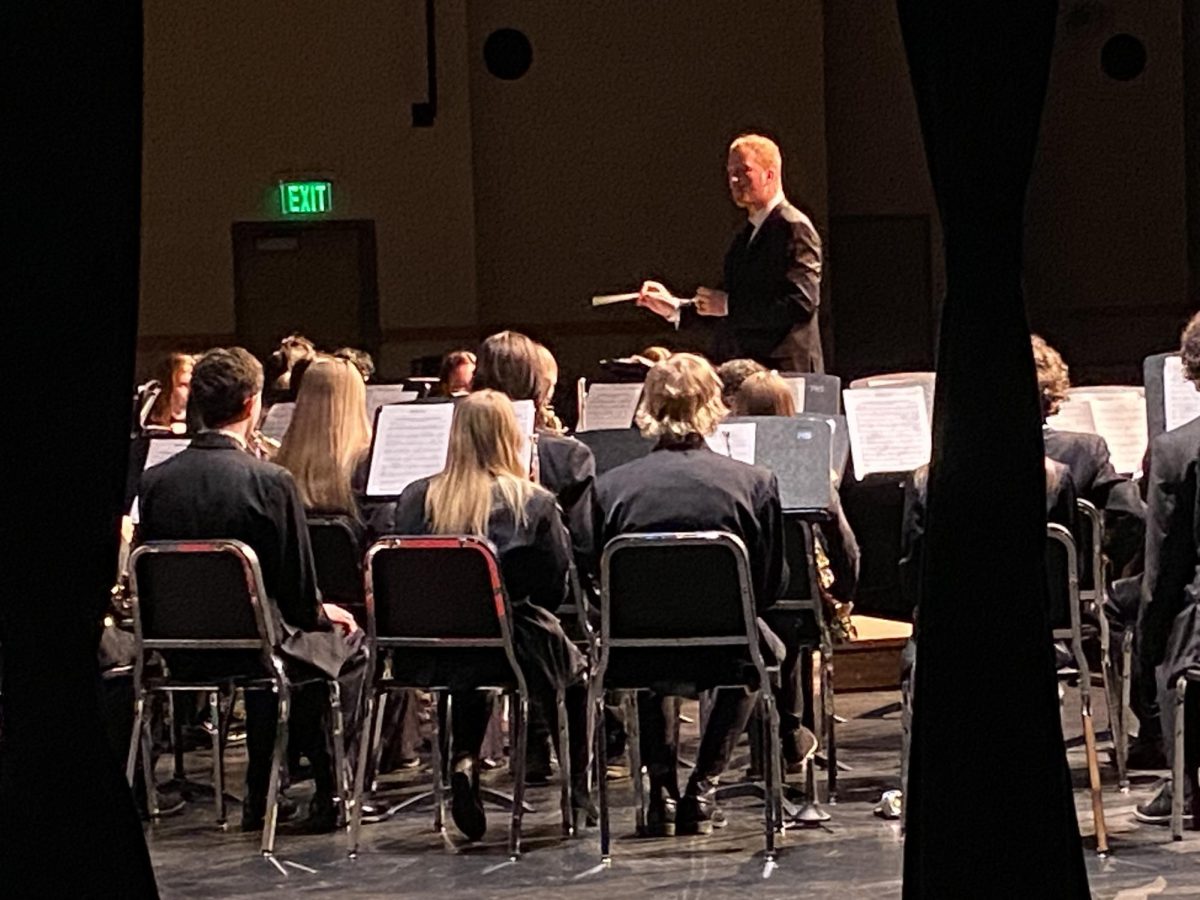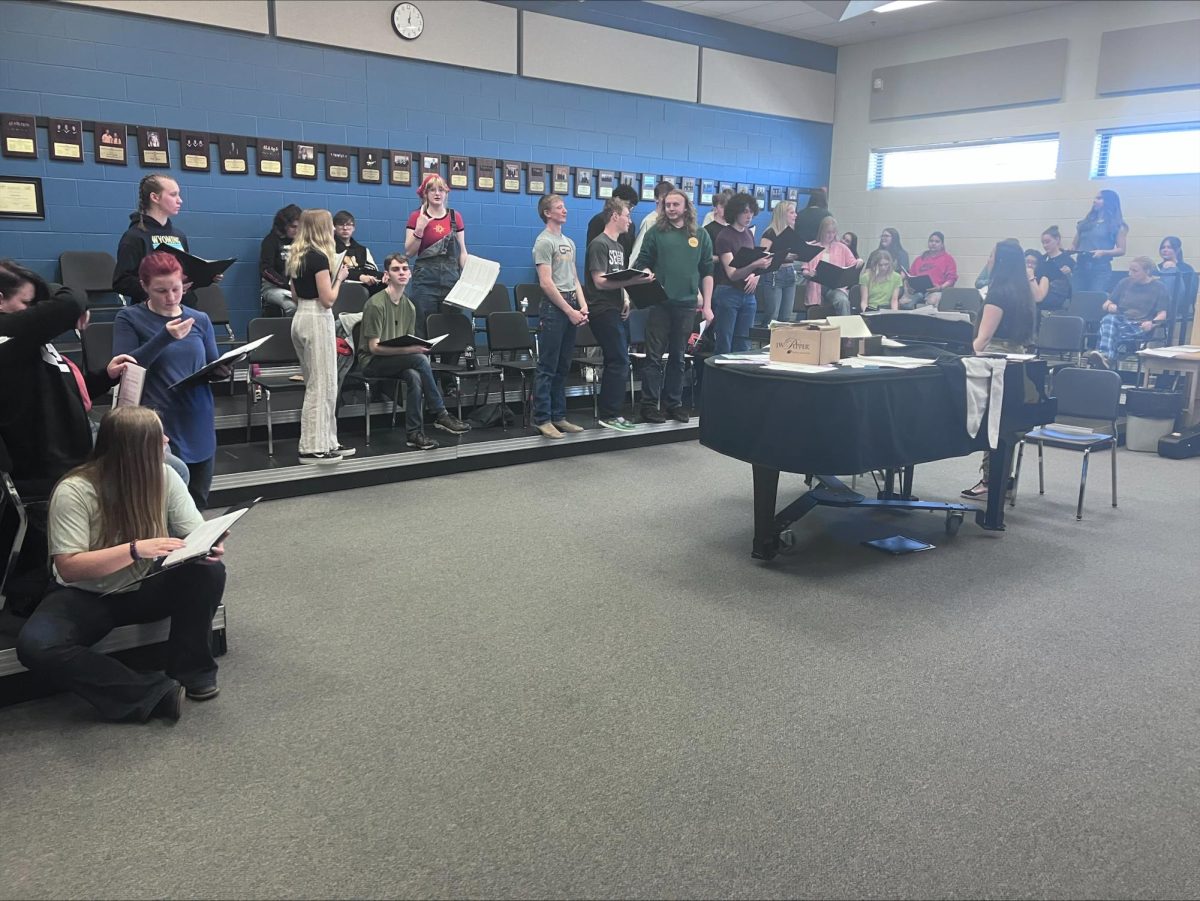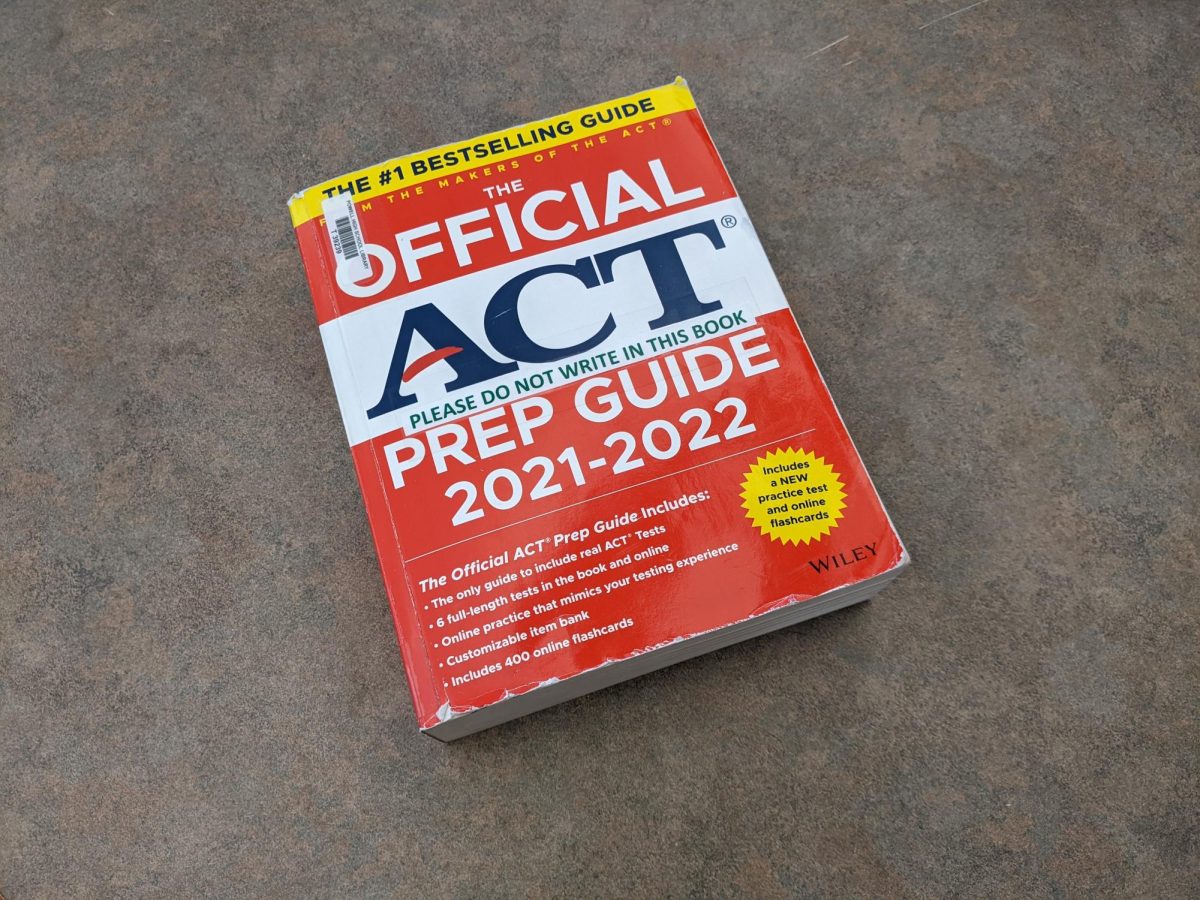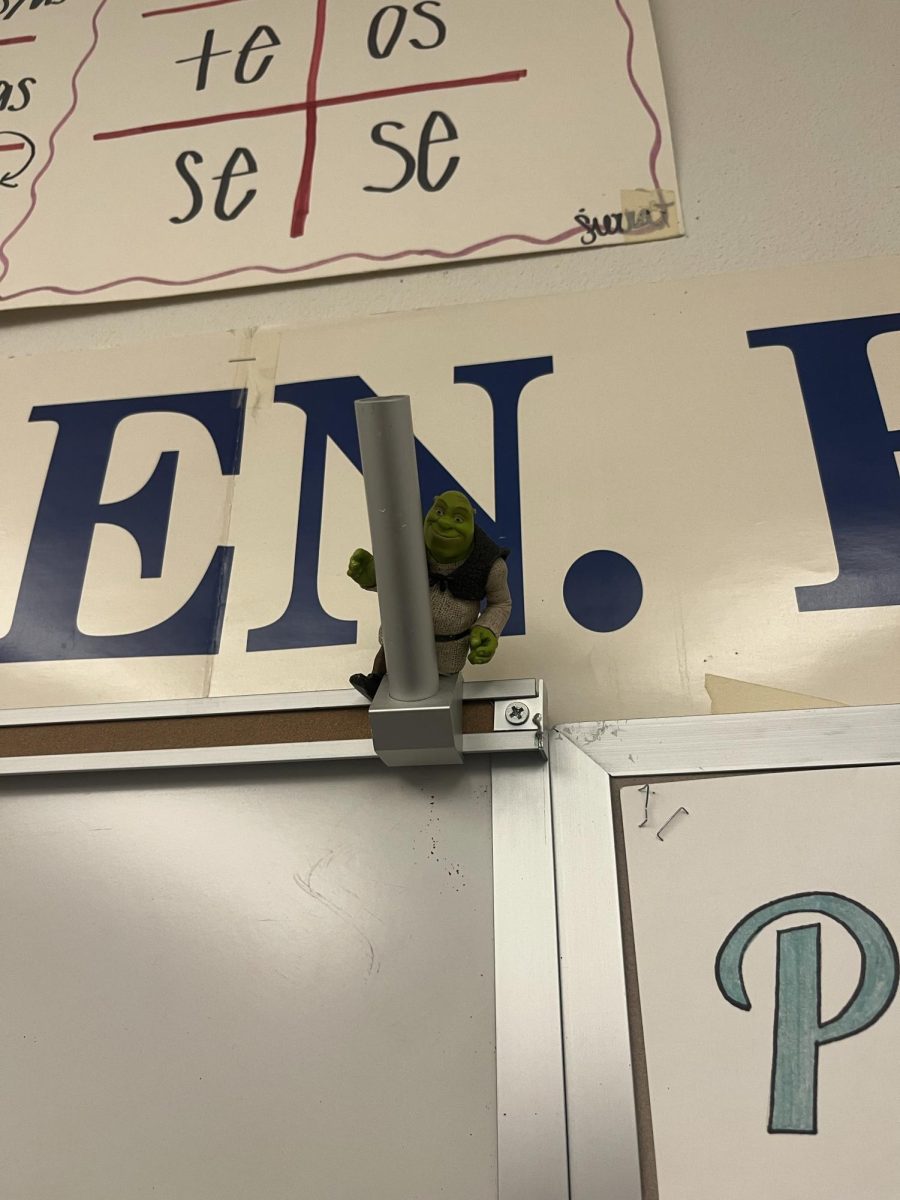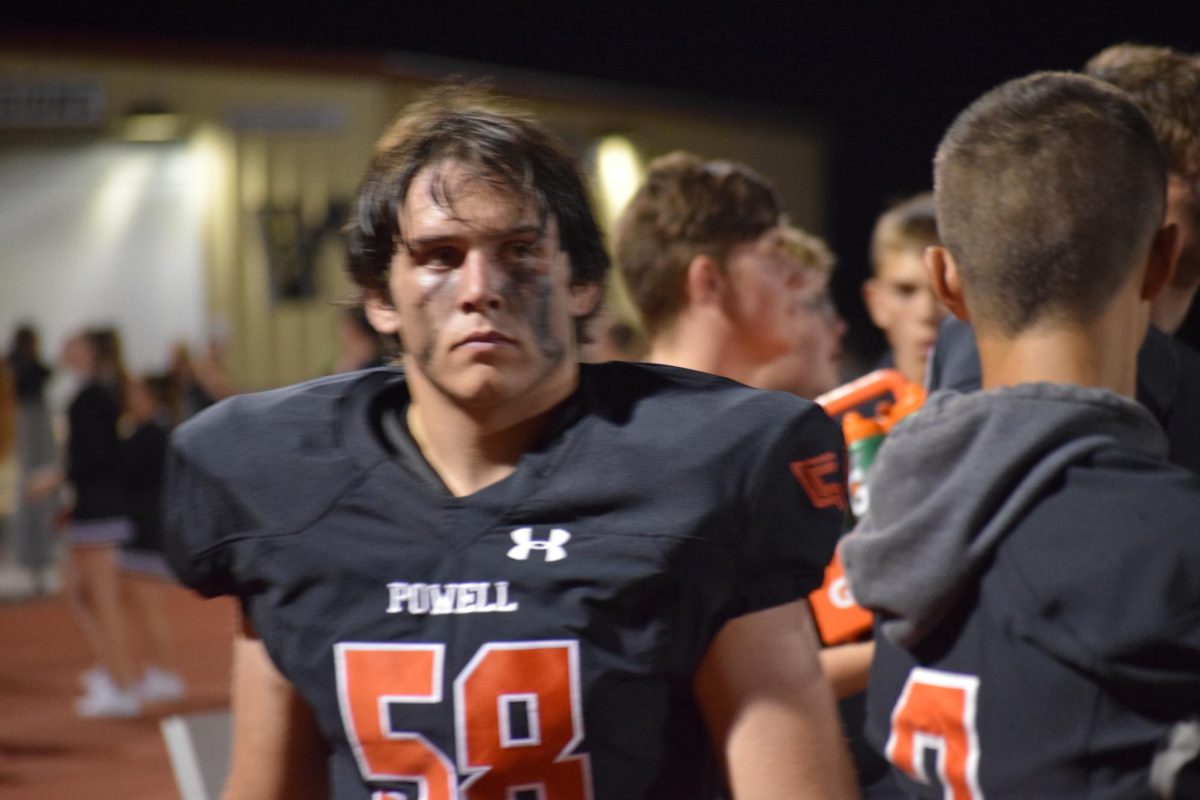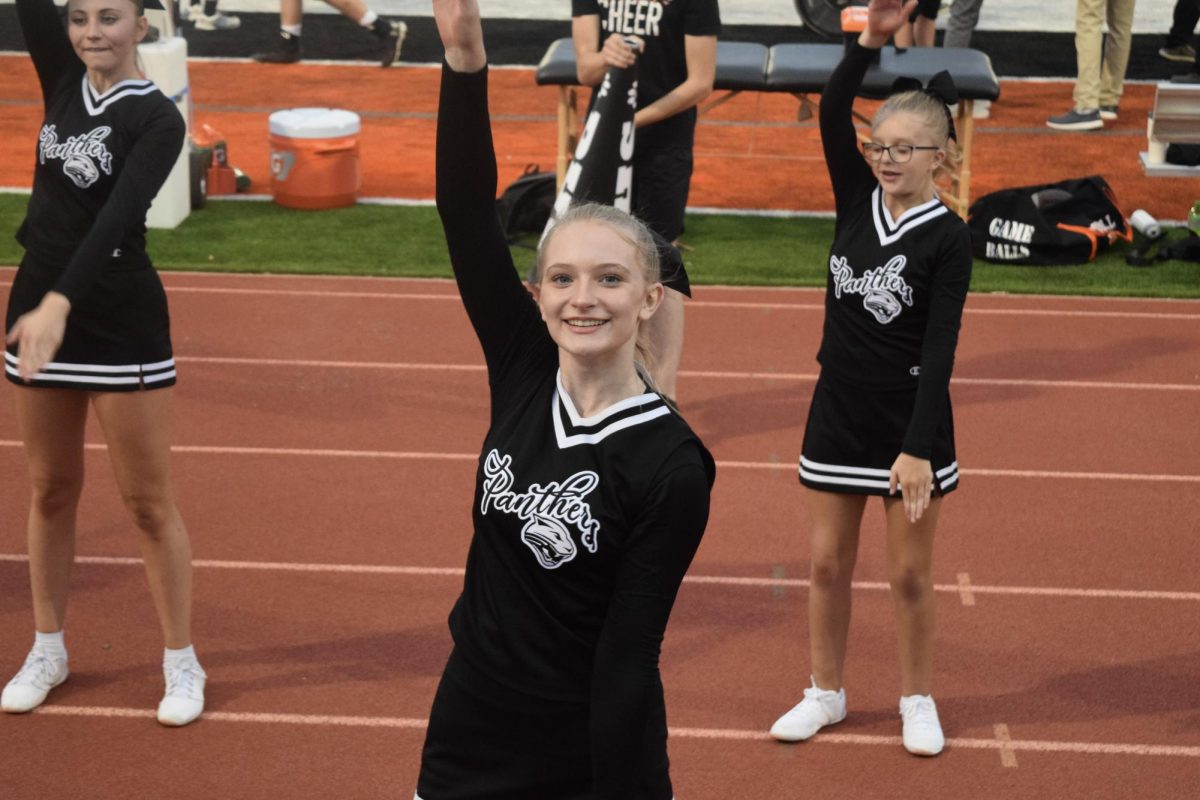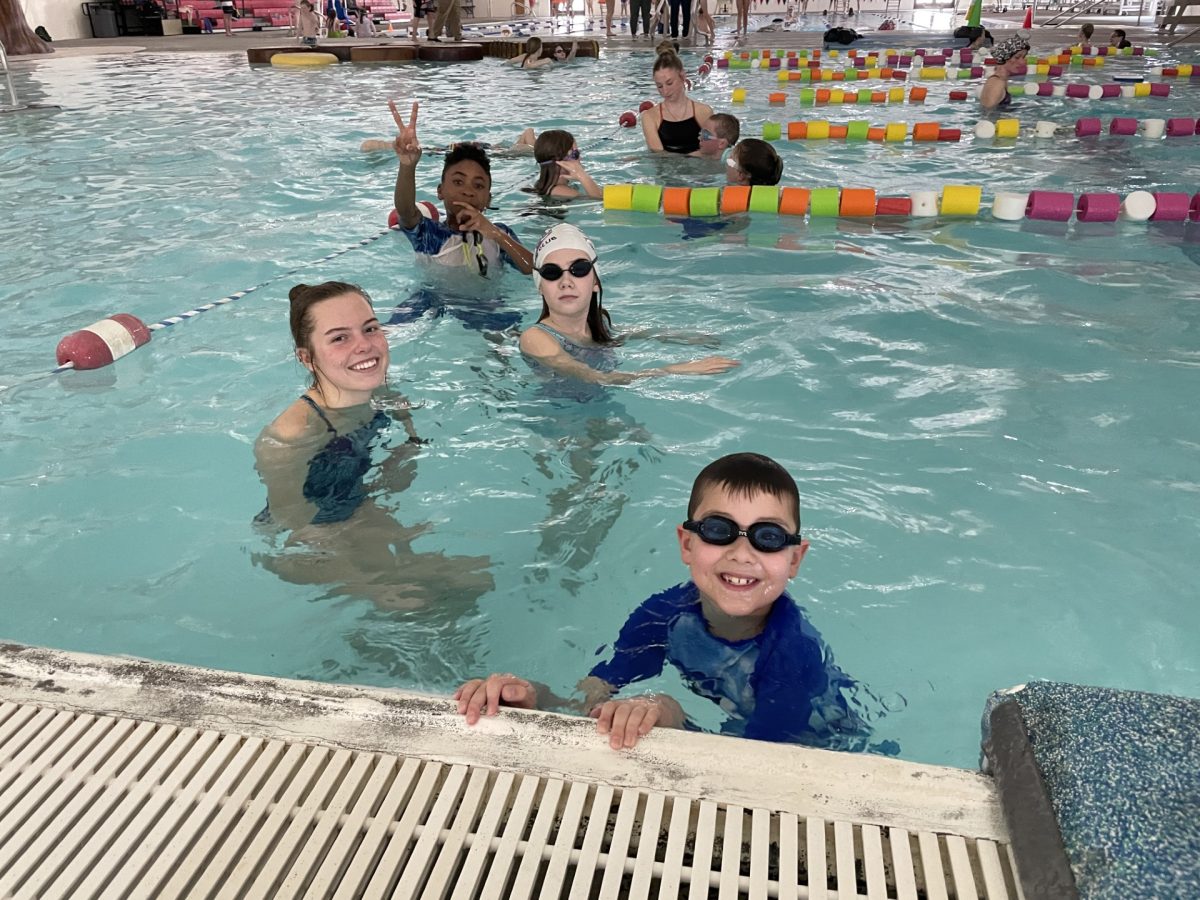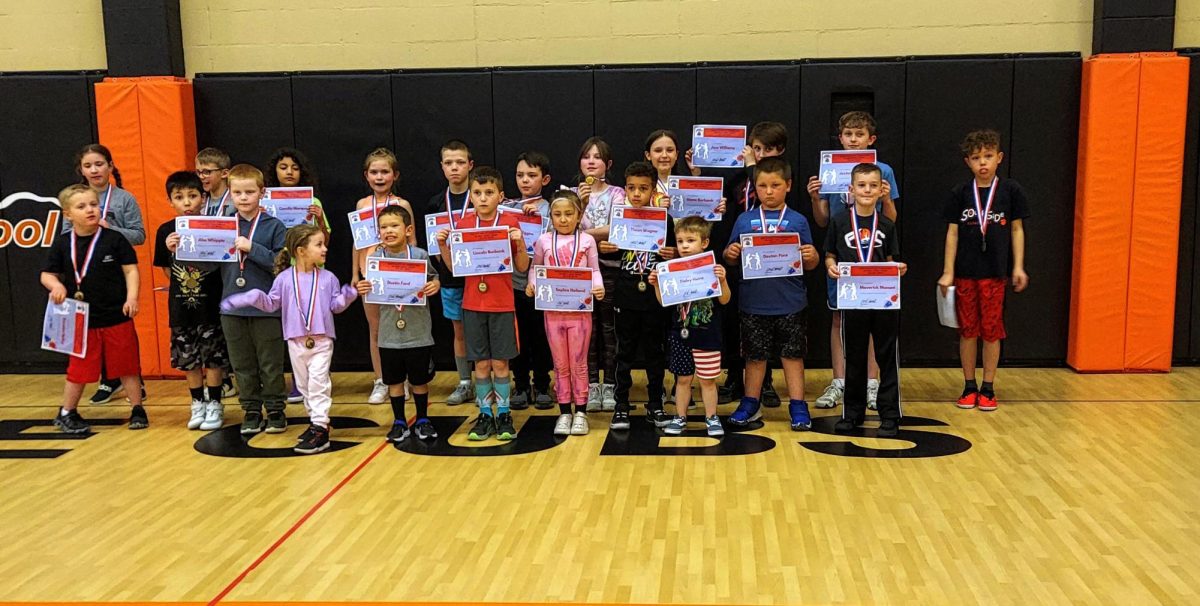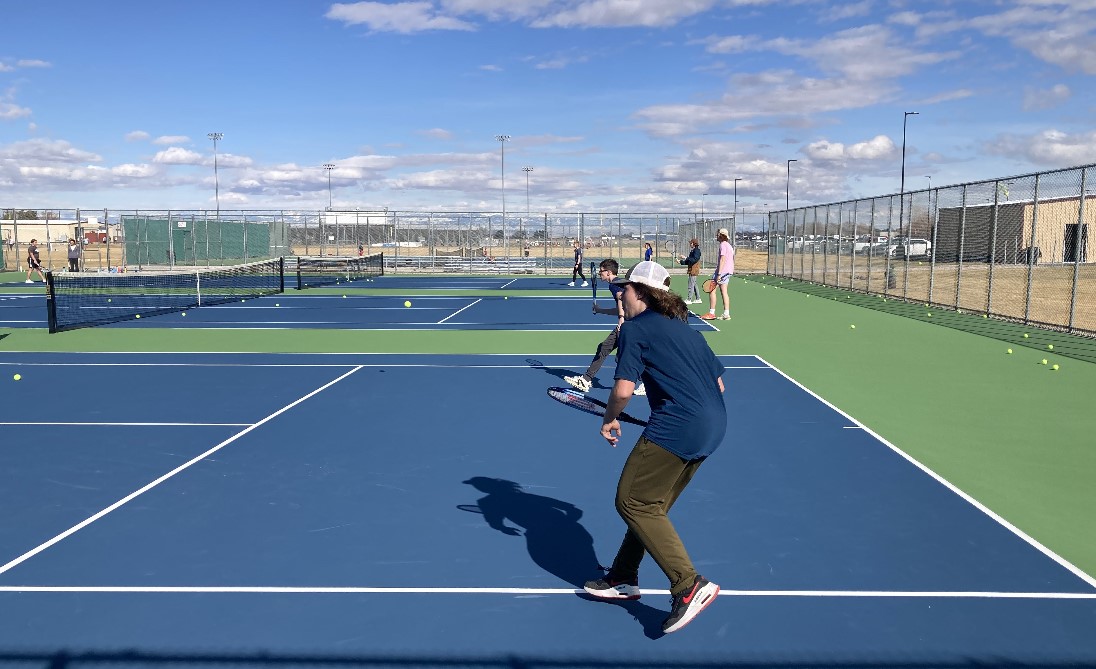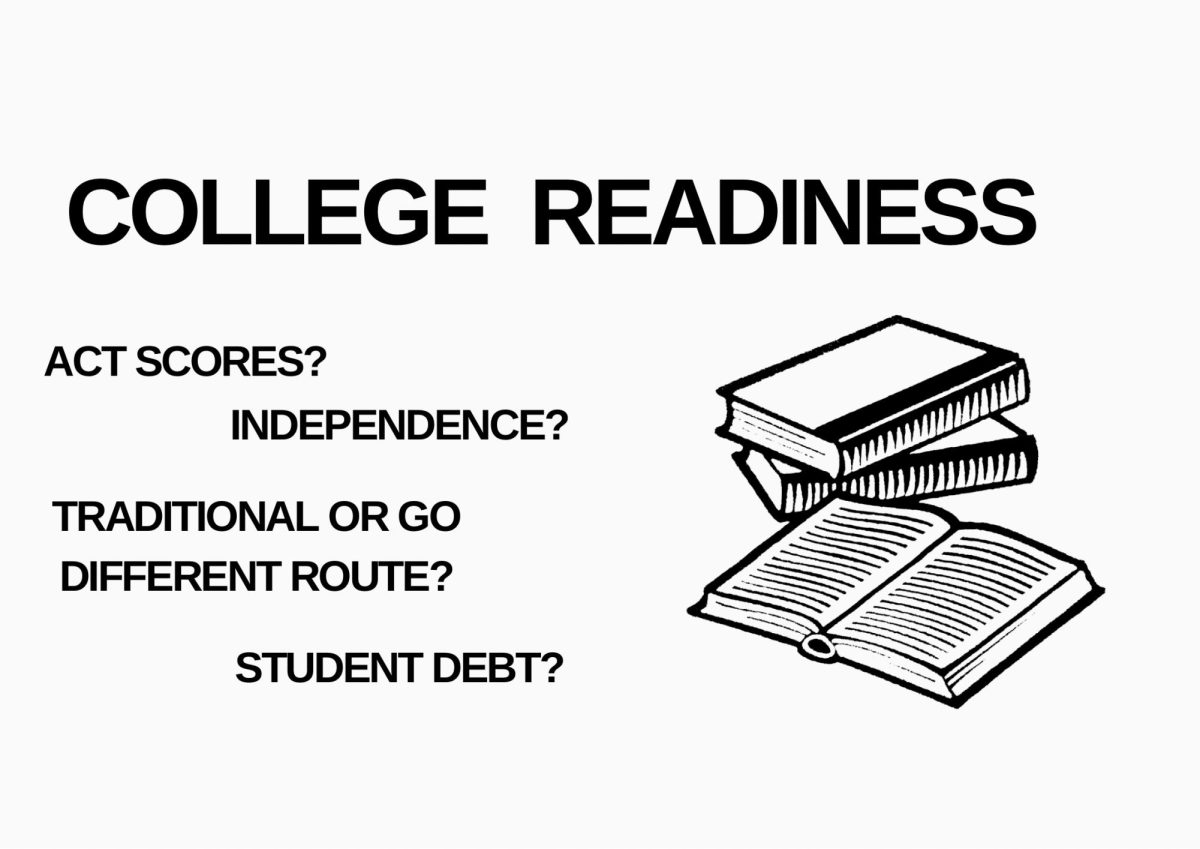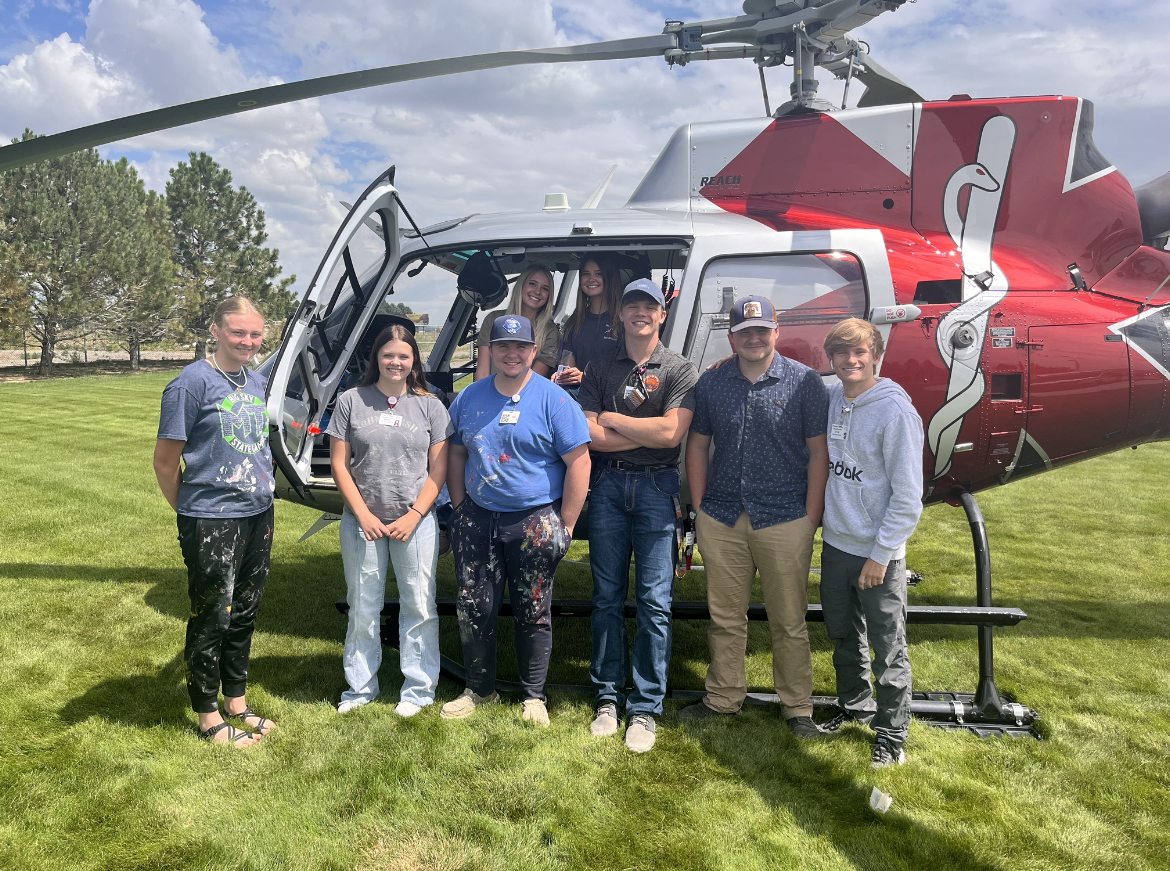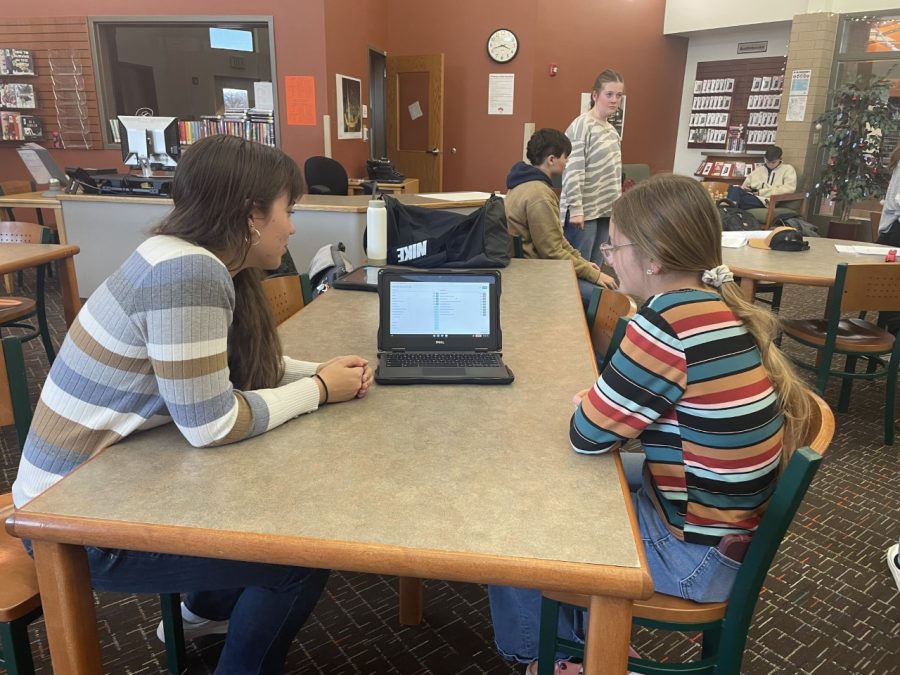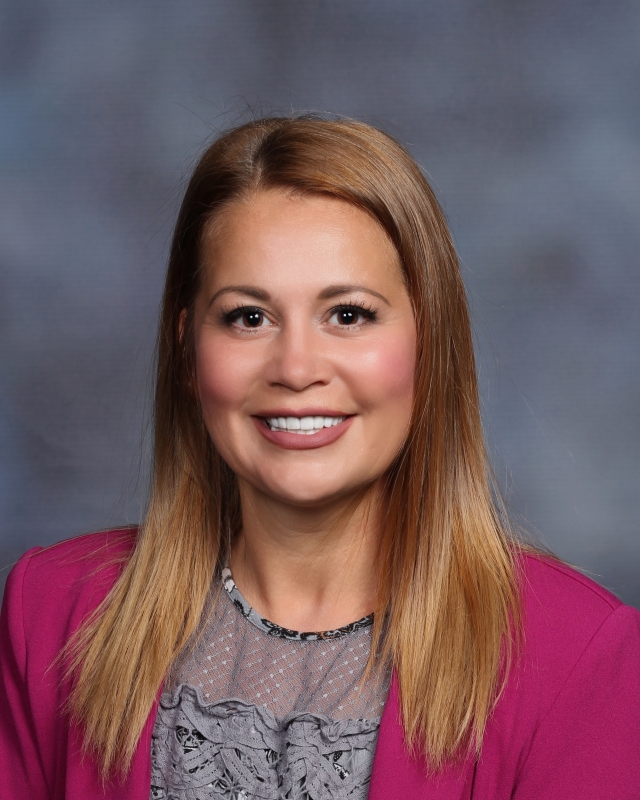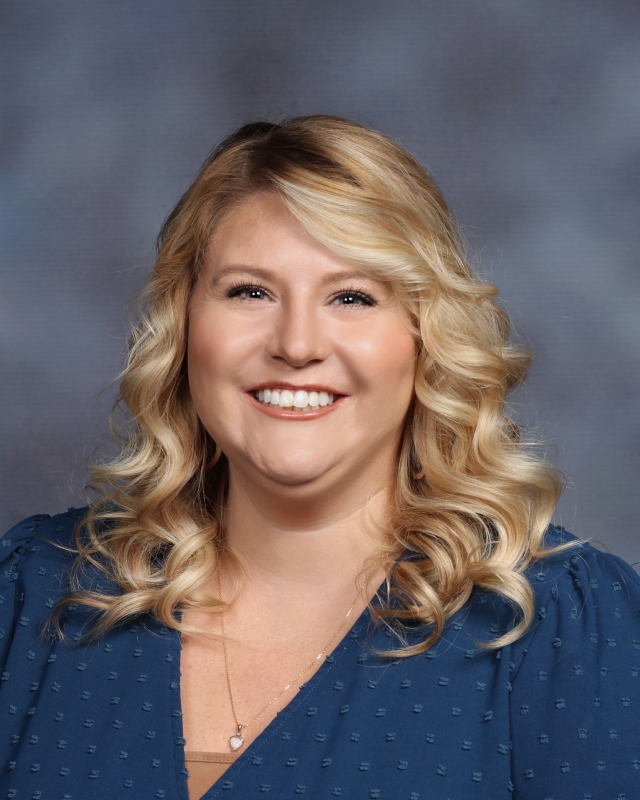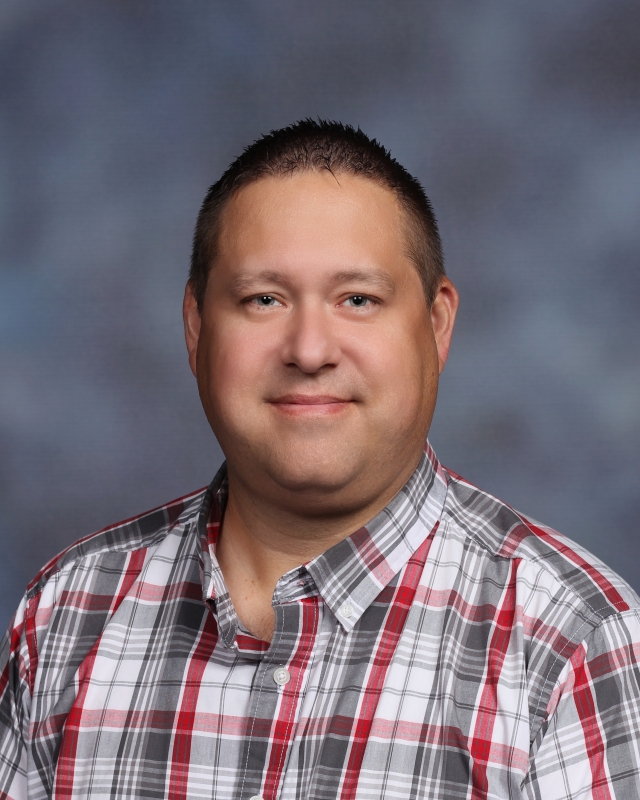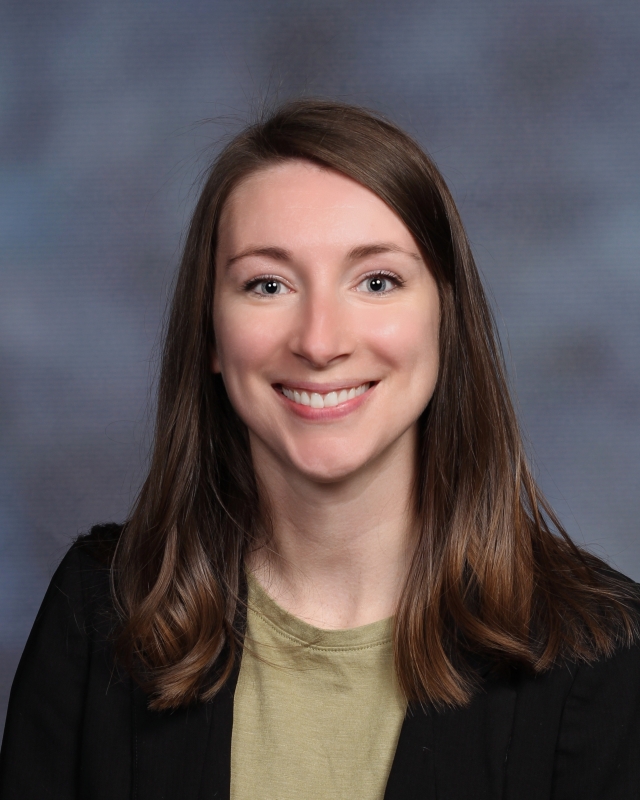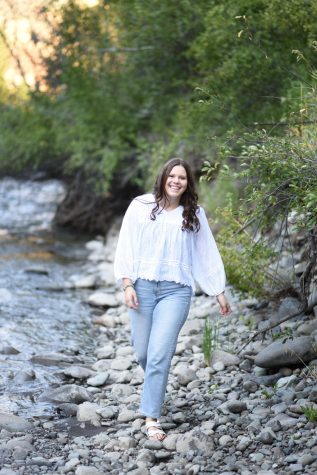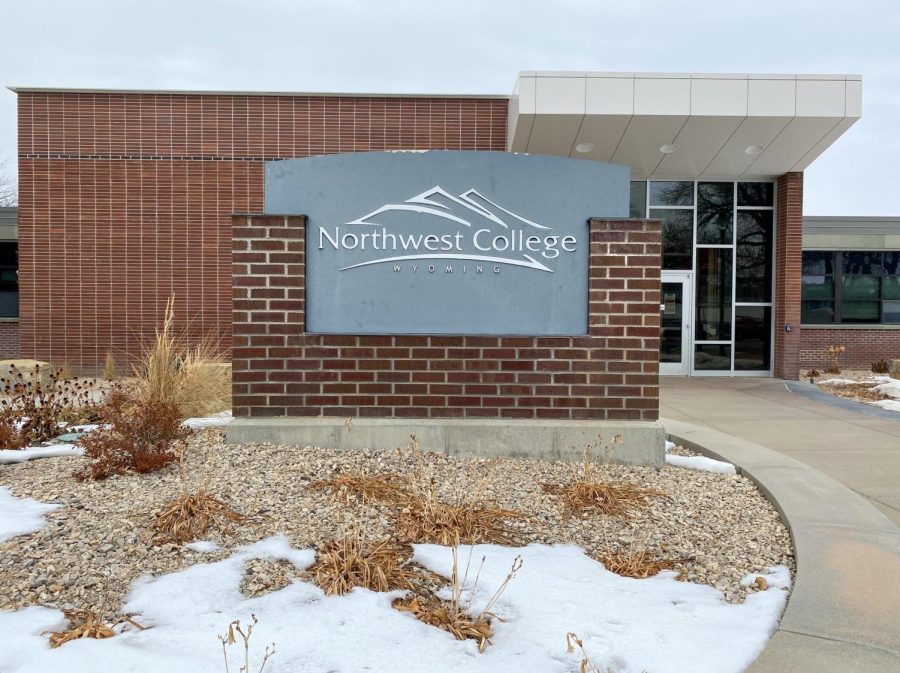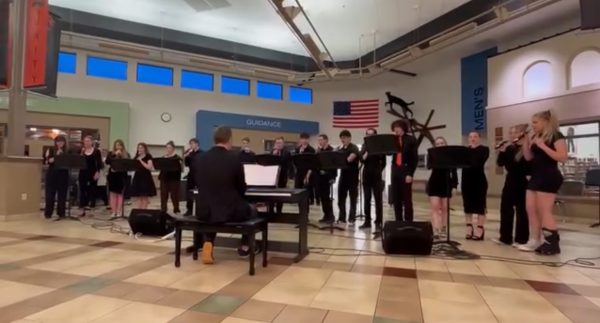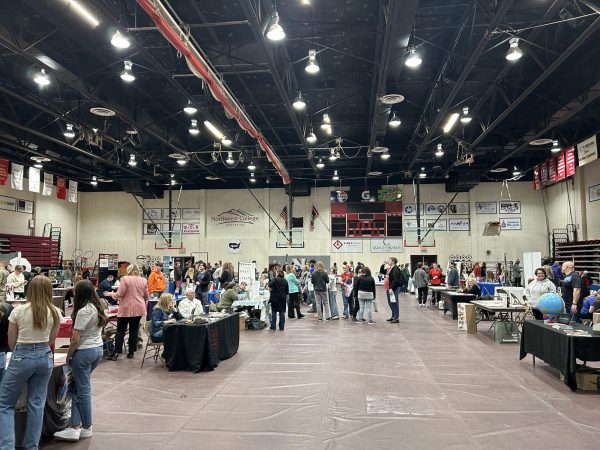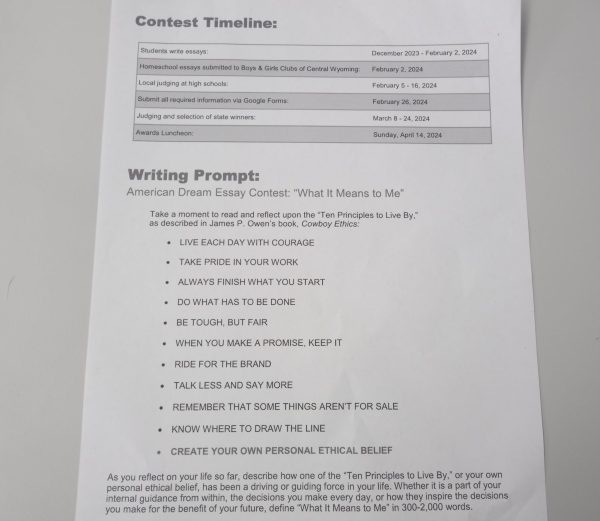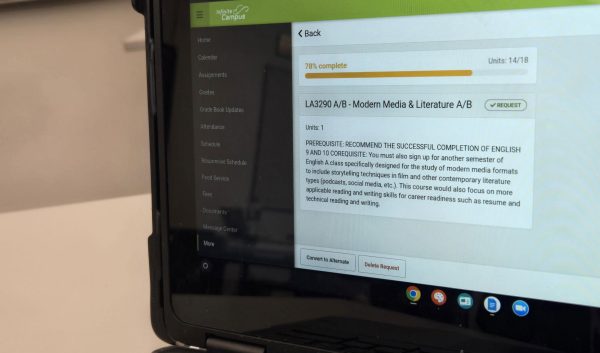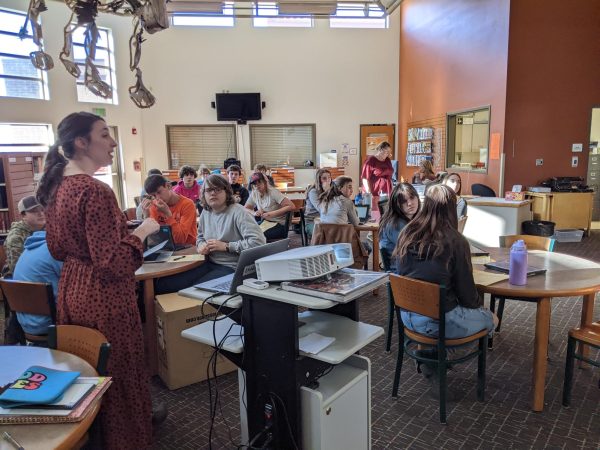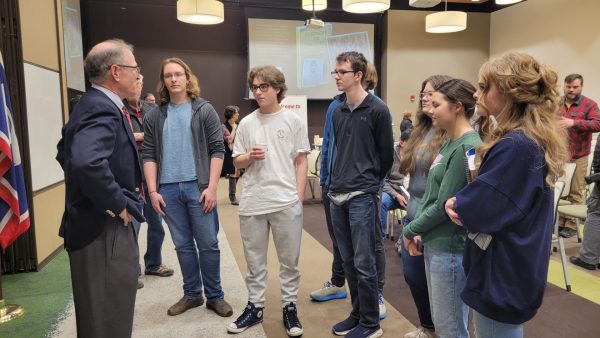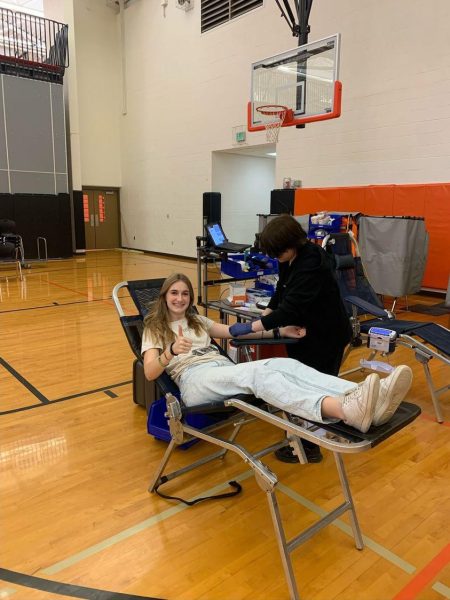TOO FAR AHEAD
PHS students and staff discuss the benefits and consequences of dual enrollment classes
Photo Courtesy of Gabby Paterson
Many PHS juniors and seniors take dual enrollment classes through Northwest College. These students have the opportunity to take a variety of classes alongside traditional college students.
Dual and concurrent enrollment have become a normality at Powell High School. High achieving juniors and seniors have the opportunity to begin taking college courses before they receive their diploma.
While many students are grateful for the chance to take college courses, others are not satisfied with the two-class dual enrollment limit. The limit forces some students to fill their schedule with classes they are either not interested in or don’t need for their career path.
“I really wish I was able to take more [dual enrollment classes],” senior Kalin Hicswa said. “Some classes I have taken were really just there to fill my day because of the limitation of two dual enrollment classes being allowed.”
Although dual enrollment may be perceived as the perfect opportunity for students striving to adequately prepare themselves for college, it’s imperative to remember academics aren’t the only important facet of high school.
“I can resonate with my high achieving students that they want to push themselves, or they want to take advantage of all these extra opportunities that give them a leg up,” guidance counselor Mrs. Kara Miller said. “Sometimes we forget part of this journey is also self-awareness and reflection on what we can handle and what’s healthy for us in that moment.”
Sometimes we forget part of this journey is also self-awareness and reflection on what we can handle and what’s healthy for us in that moment.
— Mrs. Miller
Dual enrollment classes have been a way for students to get a head start on their collegiate career during their junior and senior year, however, throughout their freshman and sophomore years, there are few opportunities for Advanced Placement classes.
“I understand that AP classes offer more of a challenge and more college readiness,” junior Kik Hayano said. “I believe that AP in more subjects at a younger age would serve everyone at the school.”
Looking at the other side of the spectrum, taking all of these college classes in high school can affect your future collegiate career. Instead of entering a university as a true freshman, you are going in with the same amount of credits as a sophomore.
“It puts a lot more pressure on seniors to know what they want to do when they go into college,” senior Anna Bartholomew said. “You don’t have that first year to get all your generals done and figure out what you want to do. You’re going in basically as a sophomore, so you are starting out with those specialized classes.”
Others disagree with this statement because scholarships still allow students to use the money for all four years even if they do have all of your generals.
“I think [taking college classes in high school] gives you more flexibility in college,” Hayano said. “If you get scholarships, it gives you more time for the money that you get because you can take more classes pertaining to your major.”
Even though high school is greatly focused on academics, it’s important to not dismiss other crucial learning elements of high school. High schoolers tend to put more value in the academic side rather than the simple life skills.
“There’s a point when we get so focused on what we should be taking advantage of that we forget to be present in all of the other things that high school is about,” Mrs. Miller said. “We sometimes neglect the importance of friendships, navigating communication with adults and getting ready for what it means to be independent in our living.”



